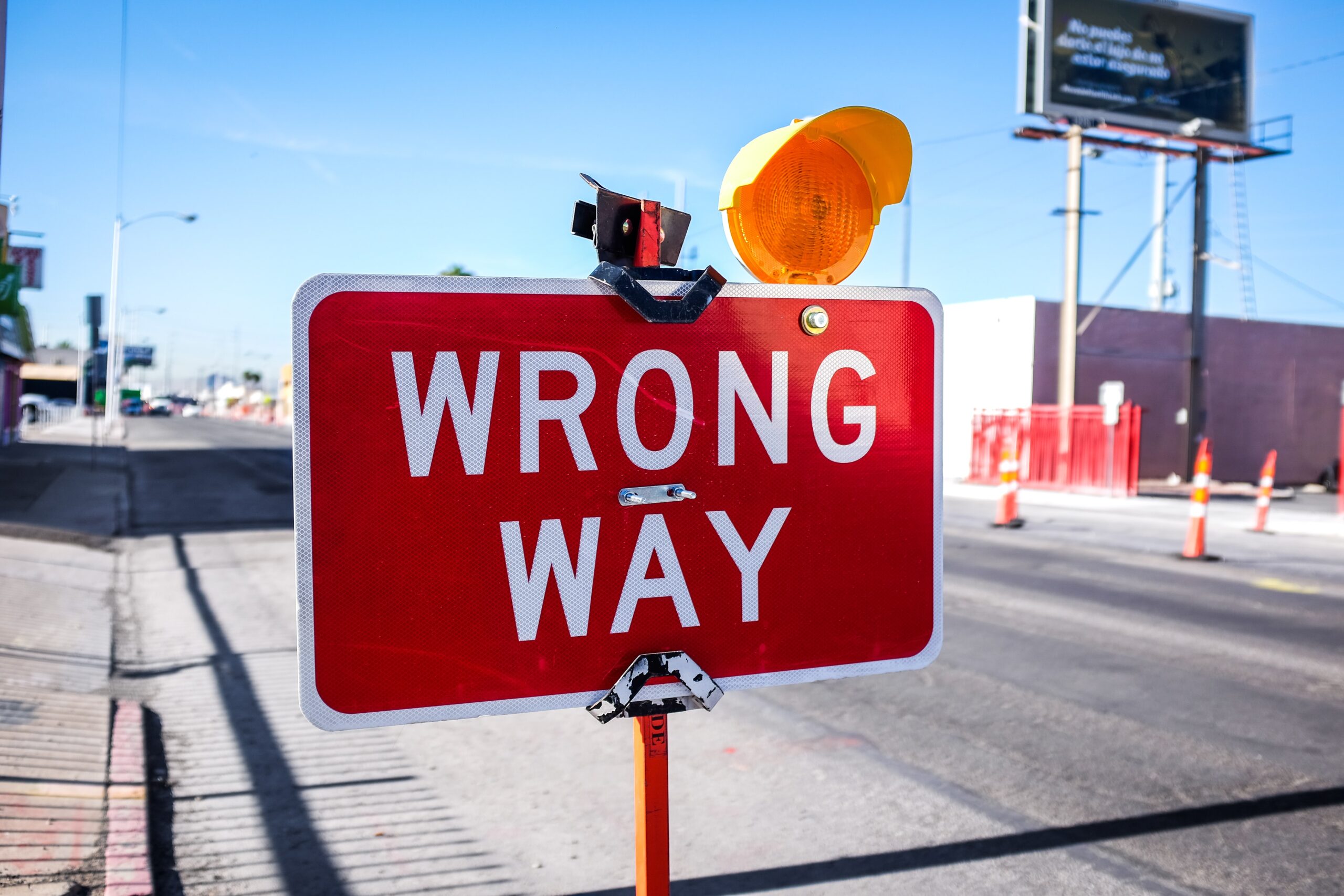Too Many Mistakes
Week 4 of A Study in Joy
And we know that for those who love God all things work together for good, for those who are
called according to his purpose.
–Romans 8:28
In him we have obtained an inheritance, having been predestined according to the purpose of
him who works all things according to the counsel of his will.
–Ephesians 1:11
Are you wondering if you can ever reach a point of joy and contentment when you look back at a life of stupid mistakes, botched relationships, wrong decisions, and seemingly one failure after another?
The short answer is: you can, but not by yourself.
You need a power source and guide—the Bible. Both the Old and New Testaments are packed with the histories of those who made mistakes, serious ones, who blundered through life, and who would have become utter failures if it weren’t for God’s saving mercy. You might say, from one point of view, the Bible is a chronicle of bad choices and tragic failure covering many centuries and a variety of cultures. And all these could have been written off as merely tragedies, but for the grace of God.
If you feel like God will never forgive you, read King David’s story (2 Kings 11 and following). Not only did God forgive and bless him, but “God testified concerning him: ‘I have found David son of Jesse, a man after my own heart’” (Acts 13:22). David deserves the Pulitzer Prize for writing perhaps the greatest of all prayers of confession (Psalm 51).
The point is the same in whatever generation you choose to study. People have chosen the wrong school, the wrong career, the wrong spouse, a foolish investment, a bad move across the country, or the ocean, which proved to be a monumental mistake. You might be thinking of your own decision that altered the course of your life.
But God saves and rescues us not because we’re so smart and good, but because we’re not. He loves us not because we’ve made no mistakes in life or because we’re the best of the bunch, but because we’ve made too many unforced errors. Our performance (whatever our report card says) plays no role in our forgiveness, salvation, or God’s deliverance from bad mistakes. His mercy and grace have no human prerequisites. He
doesn’t build our spiritual house with the shoddy, third-rate materials we bring to the worksite.
God isn’t interested in the slightest in our evaluation of our successes or righteousness, or lack of them. We aren’t the judges of our own lives. Our analysis of ourselves is going to be, at best, a misjudgment. Let’s not hide from God behind the sad excuse that we’ve outdone everyone else in history in the mistake department. This self-evaluation may just be another form of vanity or false humility.
These could also be called “good mistakes”—blunders that seem on the surface to be so profound that we could never recover from their consequences: stupid things, careless and thoughtless actions, dumb decisions that lead to an opposite track headed in the wrong direction. Such bad mistakes can lead to a lifetime of regrets and relentless self-condemnation—the very things that block happiness.
Yet because of God’s creative power (and no other reason), he takes the mess, the broken pieces of our lives, and creates an entirely new start, an open door to something of more excellent value. God can take the rubble of our error (or of something someone else has done to us) and turn it into a significant advantage or advance. It’s not that he does something for us in spite of our mistake, but he uses the mistake itself as the means for the blessing!
Charles Colson was a member of President Richard Nixon’s staff who was drawn into the Watergate scandal (1972). Watergate was a break-in into the Democratic National Committee headquarters to steal documents and wiretap the telephones.5 Considered the “Evil Genius” and mastermind of the Watergate break-in, Colson ended up doing time in prison. Of the biggest mistake of his life, he writes, “…the real legacy of my life was my biggest failure—that I was an ex-convict. My greatest humiliation— being sent to prison—was the beginning of God’s greatest use of my life; He chose the one thing in which I could not glory—for His glory.”6
The story of Charles Colson “is a testimony to God’s grace and mercy.”7 It was because of this colossal life-blunder that he came to faith and spent the rest of his life in a far-reaching Christian ministry—Prison Fellowship. Prison Fellowship is considered the United States’ “largest Christian nonprofit serving prisoners, former prisoners, and their families, and a leading advocate for criminal justice reform.” Charles Colson’s global influence for good—in prison work, evangelism, and apologetics—has exceeded most other pastors, evangelists, and missionaries.
There are just as many cases where someone else’s behavior or decision affects our lives in unexpected ways.
Martin Luther unwittingly triggered off the Reformation by nailing his “95 Theses” to the door of the Schlosskirche (Castle Church) in Wittenberg, Germany. Writing in Latin, he intended his points to generate an in-house discussion among scholars and theologians only because of the content’s explosive nature. But someone else took things into his own hands, translating it into German, then printed and distributed the 95 Theses widely among the people. In Luther’s mind, this was a frustrating and embarrassing mistake that would ruin everything. The rest is history.8
I moved my family across continents many years ago to accept a call to a ministry I was convinced was God’s will. Even though it soon appeared to be one of the worst decisions I had ever made, several wonderful things happened to my family due to it. Since then, I’ve had much less fear of making major life blunders and have been slow to label them as “mistakes.” What does that mean if God is in charge? The Psalmist had it right when he declared there is no place in the universe to go where God is not present (Psalm 139:7–10). And where God is, anything can happen.
Such interesting “rearrangements” in life happen when God involves himself in our lives, takes over the reins, and turns things around for our good. We sometimes forget that he is God and has plans and purposes for our lives that far exceed our own. He likes performing these redirections. He’s good at it and can do the unexpected, even the impossible, when all hope is lost. Here’s something to celebrate with fireworks and a
reason to be joyful when literally nothing else—no other technique, belief, or self-help—works for the long haul. It’s God, all God, and nothing but God!
Personal Reflection:
For Thought or Discussion:
1. Read Isaiah 43:25; Hebrews 8:7–13. Meditate every morning upon this truth
about God’s forgiveness repeated in many different forms throughout the Bible.
2. Read David’s prayer of confession in Psalm 51:1–12. Then read John 1:9 about
confession and cleansing. If sincere, the promise is yours. In many churches, it is
read in every worship service, because so quickly we forget it.
3. Bring this truth to mind, frequently: It’s not possible for your sin or failure to be
greater than God’s forgiveness.
4. Do you find it difficult to stop condemning yourself for something you’ve done?
Notes:
5. “Watergate Scandal.” History.com. https://www.history.com/topics/1970s/watergate (accessed December
2020).
6. “The Legacy of Failure.” PrisonFellowship.org. https://www.prisonfellowship.org/2016/03/the-legacy-of-failure (accessed December 2020).
7. “The Legacy of Chuck Colson.” PrisonFellowship.org. https://www.prisonfellowship.org/archivedpages/
chuckcolson (accessed December 2020).
8. “Ninety-five Theses.” Britannica.com. https://www.britannica.com/event/Ninety-five-Theses (accessed
December 2020).







